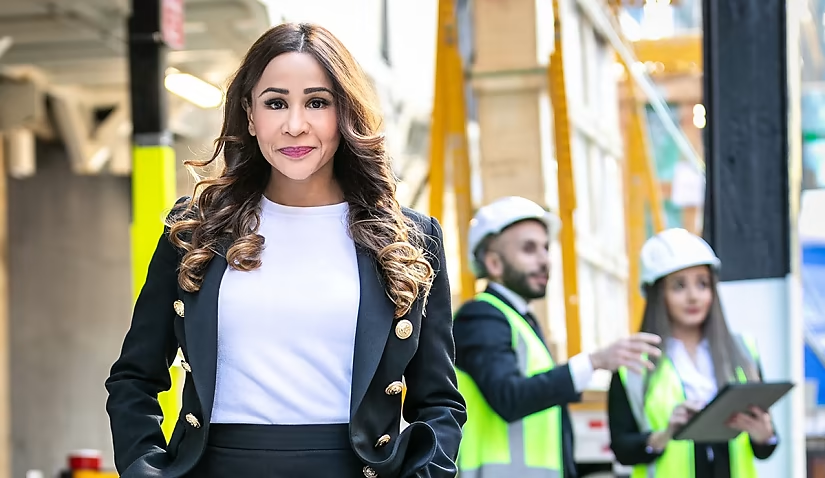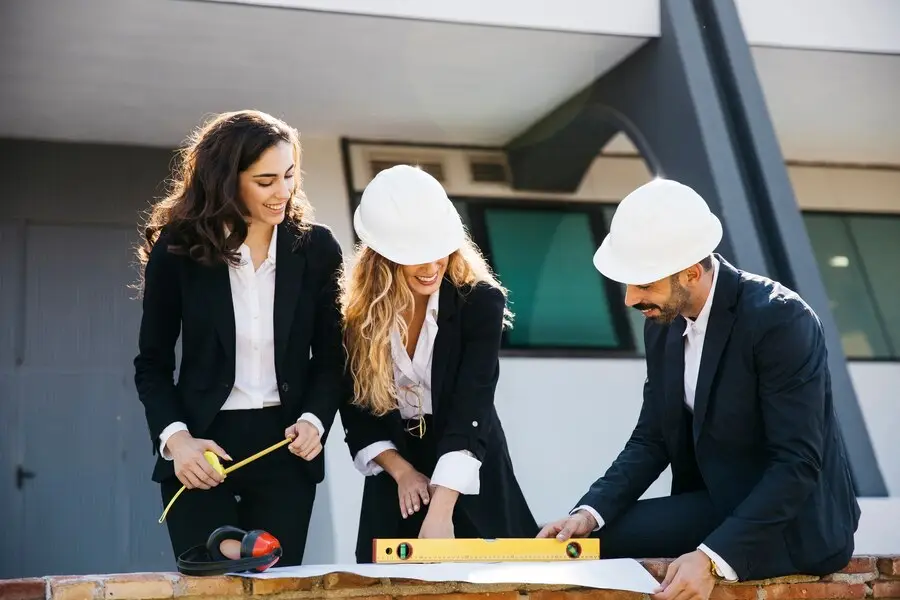When it comes to construction projects, whether residential or commercial, the legal landscape can be complex and daunting. Engaging a competent construction lawyer is essential to navigate contracts, disputes, and regulatory requirements. Sydney boasts a plethora of legal professionals, but finding the best construction lawyer to suit your specific needs requires careful consideration. This article offers valuable tips to help you identify and select the right construction lawyer in Sydney.
Understanding the Role of a Construction Lawyer
Before embarking on the search for a construction lawyer Sydney, it is crucial to understand their role in the construction industry. Construction lawyers specialise in legal issues related to construction projects, including contract negotiations, compliance with local laws, and dispute resolution.
Key Responsibilities
A construction lawyer’s responsibilities can vary widely, but they typically include drafting and reviewing contracts, advising on regulatory compliance, and representing clients in disputes. They also assist in risk management, ensuring that potential legal issues are identified and mitigated before they escalate. Furthermore, they may provide guidance on employment law matters, particularly when it comes to subcontractors and labour relations, ensuring that all parties involved adhere to the relevant regulations and standards.
Types of Legal Issues
Construction lawyers deal with a range of legal issues, including contract disputes, delays, cost overruns, and regulatory compliance. Understanding these issues can help clients articulate their needs more effectively when consulting with a lawyer. In addition to these common challenges, construction lawyers often navigate complex issues such as environmental regulations, health and safety compliance, and zoning laws, which can significantly impact project timelines and budgets. Their expertise in these areas not only aids in resolving disputes but also plays a vital role in the successful planning and execution of construction projects, ensuring that all legal frameworks are adhered to from the outset.
Identifying Your Needs
Once the role of a construction lawyer is understood, the next step is to identify specific legal needs. This will guide the selection process and ensure that the chosen lawyer has the right expertise.
Project Type
The type of construction project—residential, commercial, or industrial—can significantly influence the choice of lawyer. Different projects come with unique legal challenges, and a lawyer with experience in your specific area will be better equipped to handle the nuances involved. For instance, residential projects may involve issues related to zoning laws and homeowner associations, while commercial projects often require a deeper understanding of corporate regulations and financing structures. Industrial projects, on the other hand, may necessitate knowledge of environmental laws and safety regulations that are critical to compliance and risk management.
Legal Services Required
Consider the specific legal services you require. Are you looking for assistance with contract negotiation, dispute resolution, or regulatory compliance? Identifying these needs upfront will help narrow down the list of potential lawyers. Additionally, it may be beneficial to think about whether you require ongoing legal support throughout the project lifecycle or if your needs are more episodic, such as for specific contract reviews or mediation sessions. Some lawyers may also offer ancillary services, such as risk assessment or project management advice, which could prove invaluable in navigating the complexities of construction law.
Furthermore, understanding the legal landscape of construction can be quite intricate, given the multitude of stakeholders involved, from architects and engineers to subcontractors and suppliers. Each of these parties may have their own legal requirements and obligations, which can complicate matters. Therefore, a lawyer who not only understands the legalities but also possesses strong negotiation skills and a collaborative approach can be an asset in fostering effective communication among all parties, ultimately leading to a smoother project execution.
Researching Potential Lawyers
With a clear understanding of your needs, the next step is to conduct thorough research. This can be done through various channels, including online resources, professional networks, and legal directories.
Online Resources
The internet is a valuable tool for finding construction lawyers in Sydney. Websites such as law firm directories and legal review platforms provide insights into lawyers’ specialisations, client reviews, and their overall reputation in the industry. Take the time to read through reviews and testimonials to gauge the experiences of previous clients. Additionally, many law firms now maintain active blogs or articles that discuss recent developments in construction law, which can offer a glimpse into their expertise and approach to complex legal issues. Engaging with these resources can help you understand not only the lawyer’s qualifications but also their perspective on current industry challenges.
Professional Networks
Networking within the construction industry can also yield valuable recommendations. Speak to colleagues, contractors, or industry associations to gather referrals. Personal recommendations often carry more weight than online reviews, as they come from trusted sources. Attending industry events, seminars, or workshops can further enhance your network and provide opportunities to meet potential lawyers in a more informal setting. These interactions can help you assess their communication style and approach to client relations, which are crucial factors in establishing a productive working relationship. Furthermore, consider joining local construction or legal associations, as they often have directories of members that can assist in your search for a qualified lawyer.
Evaluating Qualifications and Experience
Once a shortlist of potential lawyers has been compiled, it is essential to evaluate their qualifications and experience. This step will help ensure that the selected lawyer has the necessary expertise to handle your specific legal needs.
Educational Background
Check the educational qualifications of each lawyer. A solid academic background in law, particularly with a focus on construction or property law, is a good indicator of their expertise. Additionally, membership in professional legal associations can signify a commitment to ongoing education and adherence to industry standards.
Years of Experience
Experience is a crucial factor in selecting a construction lawyer. Look for lawyers who have a proven track record in handling cases similar to yours. A lawyer with several years of experience in the construction sector will likely have a deeper understanding of the legal landscape and potential pitfalls.
Assessing Communication Skills
Effective communication is vital in any legal relationship. A construction lawyer must be able to explain complex legal concepts in a manner that is easily understood by clients. Assessing their communication skills during initial consultations can provide insight into how they will interact with you throughout the legal process.
Initial Consultation
Many lawyers offer initial consultations, which can be a valuable opportunity to assess their communication style. During this meeting, pay attention to how well the lawyer listens to your concerns and whether they provide clear, concise responses. A good lawyer should be approachable and willing to address any questions you may have.
Responsiveness
Consider how responsive the lawyer is during your initial interactions. Timely communication is essential in any legal matter, especially in construction, where delays can lead to significant financial repercussions. A lawyer who is prompt in their responses is likely to be equally diligent throughout your case.

Understanding Fees and Billing Structures
Legal fees can vary widely among construction lawyers, so it is essential to understand their billing structures before making a decision. Transparency regarding fees can prevent misunderstandings and ensure that you stay within your budget.
Fee Structures
Construction lawyers may charge hourly rates, flat fees, or contingency fees, depending on the nature of the services provided. It is crucial to discuss these fee structures upfront and ensure you have a clear understanding of how you will be billed for their services.
Budget Considerations
Establishing a budget for legal services is essential. While it may be tempting to choose the cheapest option, it is vital to consider the value of experience and expertise. Investing in a reputable construction lawyer can save you money in the long run by preventing costly legal disputes.
Checking References and Reviews
Before making a final decision, it is advisable to check references and reviews for the shortlisted lawyers. This step can provide further assurance of their capabilities and reliability.
Client References
Requesting client references can offer valuable insights into a lawyer’s performance. Speaking directly with previous clients can help you gauge their satisfaction and the lawyer’s ability to deliver results. Ask about the lawyer’s communication style, professionalism, and overall effectiveness in handling their case.
Online Reviews
Online reviews can also provide a wealth of information about a lawyer’s reputation. Websites such as Google Reviews, Avvo, or Legal 500 often feature client feedback that can help you make an informed decision. Look for patterns in the reviews, paying attention to both positive and negative comments.
Making the Final Decision
After conducting thorough research and evaluations, it is time to make a final decision. This choice should be based on a combination of factors, including qualifications, experience, communication skills, and overall fit for your specific needs.
Trust Your Instincts
While qualifications and experience are essential, trusting your instincts is equally important. Choose a lawyer with whom you feel comfortable and confident. A strong attorney-client relationship can significantly impact the success of your case.
Long-Term Relationship
Consider the potential for a long-term relationship with the lawyer. Construction projects can be ongoing, and having a reliable legal partner can be invaluable for future needs. Establishing a rapport with a lawyer can lead to a smoother working relationship down the line.

Conclusion
Finding the best construction lawyer in Sydney requires careful consideration and research. By understanding the role of a construction lawyer, identifying your specific needs, and evaluating potential candidates, you can make an informed decision that will benefit your construction project. Remember to assess communication skills, understand fee structures, and check references to ensure you select a lawyer who is not only qualified but also a good fit for your requirements.
Engaging the right construction lawyer can save time, money, and stress, allowing you to focus on what truly matters—bringing your construction project to fruition. With these tips in mind, you are well on your way to finding the best construction lawyer Sydney has to offer.
See Also: Why a residential construction lawyer can save you stress and money.

